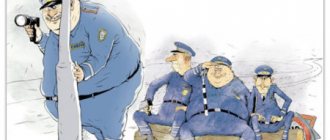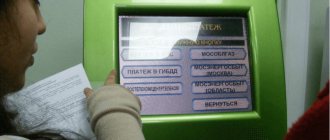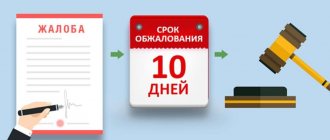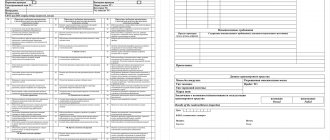Procedure
Most often, the reason for wanting to file a complaint is when a traffic police officer issues a resolution or draws up a protocol that does not meet the principle of legality.
Another reason for appeal is a violation of the driver’s rights when taking exams to obtain or replace a driver’s license, vehicle registration, as well as simply incorrect behavior of an employee or extortion of a bribe.
You can submit a claim in several of the following ways:
- As part of a personal appeal. In this case, you must print out two copies of the complaint. One remains with the traffic police, and on the other, employees make a note about acceptance of the document.
- The claim may be sent by registered mail with a return receipt noted.
- Such a complaint can also be filed online.
In this case, you can use several of the following options:
- Official website of the State Traffic Safety Inspectorate or the Ministry of Internal Affairs.
- Government services.
- System of pre-trial appeals.
If a citizen decides to file a claim via the Internet, there is absolutely no need to fill out documents on paper. Simply fill out the appropriate form on the traffic police website.
What to write in a complaint to the traffic police
The law does not have an approved form that a complaint must comply with, but this does not mean that you can write everything. Your position must be clear, and your arguments must be convincing and supported by evidence.
To make it easier, we will divide the content of the complaint into several semantic blocks.
The first block of information is introductory. We need to indicate the name and address of the court to which the complaint is addressed, your details, the details of the traffic police authority with whom you are arguing, as well as the full details of the document (decision) issued by this authority.
The second block of information is a statement of the circumstances that forced you to go to court. Clearly and briefly describe how the events took place, not forgetting to refer to the details of the protocol, indicate what you were accused of and how they decided to punish you.
The third block of information is the argumentation of disagreement with the decision made. Explain your position, list the violations, refer to evidence and legal norms that were ignored by the inspector.
If your case can be confirmed by witnesses, the complaint must indicate their details and addresses so that the court can call these people to give explanations, and also describe what specific circumstances each witness can confirm or refute.
If you cannot provide evidence yourself that you consider important, you can ask the court to assist in obtaining it. To do this, indicate what we are talking about (item, document, etc.), where and who has it.
The fourth block of information is the conclusion and final details: here you state the request to the court (for example, to cancel the decision), list everything that will be attached to the complaint, put the date and your signature.
And a few more practical tips.
Before you file a lawsuit against a traffic police officer, you should forget about emotions and “sort out” everything that you are going to refer to, noting only the essential points.
A huge mistake that even professional lawyers make is the desire to write in the complaint as much as possible about what the inspector did wrong - they say, let the judge choose what he likes best.
The fewer unconvincing arguments there are in the complaint, the more court attention you will attract and the sooner you will be supported!
If you are in doubt about whether violations are worthy of attention, consider the following.
Important:
- if your actions were incorrectly classified (for example, the resolution indicated the wrong paragraph of the traffic rules that you actually violated; you drove through an intersection when the traffic light signal allowed, and you were accused of the opposite, etc.);
- if the rule on attracting witnesses was not observed, say, a car was towed without witnesses or a police officer acted as a witness;
- if you are accused of violating the speed limit, but the documents do not contain information about which device recorded this, or such device has not passed the necessary certification;
- if the protocol or resolution was drawn up by one person and signed by another;
- if you were not notified of the time of consideration of your case and it was considered without you;
- if the decision is made later than two months after the violation took place.
Doesn't matter:
- the presence of typos, errors or minor inaccuracies in the protocol or resolution;
- discrepancy between the qualification of your actions in the protocol and the resolution (the resolution is the final decision, while the protocol is only a preliminary “foundation” for it; when adopting a resolution, clarifying the qualifications is not illegal; rather, on the contrary, it indicates a careful study of the case by the traffic police officer) .
Filling rules
So, how to write a statement to the traffic police? In principle, a claim can be made in any form. True, if desired, a person can use a special sample that is available on the Internet:
- The header indicates the organization with the official where the person is sending the complaint. For example, addressed to the head of the traffic police department. When a document is sent to the prosecutor's office, its details are indicated in the header.
- The text describes the situation as fully as possible and outlines the essence of the complaint. They also provide links to points in the regulatory documentation that were violated.
- The requirements for the official are indicated (conducting an employee check, speeding up the process of issuing a certificate, etc.).
- Evidence of the words is attached to the complaint to the traffic police.
- If there is no evidence, the claim is sent without it. Of course, in this situation the chances of resolving the case in favor of the applicant will be much less.
- Date the application with a signature.
In addition to the completed complaint paper, a copy of the applicant’s passport is required.
Sample complaint against a traffic police decision
As was said, you can appeal the traffic police decision in any form. To make it easier to draw up a complaint, we offer an approximate example of what such a document should look like.
Ivanovsky District Court of Ivanovo Region
Applicant: Petrov Alexey Nikolaevich 0000, Novoivanovsk, st. Priozernaya, 00, apt. 000
COMPLAINT against resolution No. 00000000 of January 15, 2017 in a case of an administrative offense
On January 15, 2021, the head of the traffic police of the State Traffic Safety Inspectorate of the OR GUVD of the Ivanovo region, senior lieutenant Georgy Nasirovich Grishaev, issued a resolution 00000000 in relation to me, Alexey Nikolaevich Petrov (hereinafter referred to as the “Applicant”) in the case of an administrative offense (hereinafter referred to as the “Resolution "), by which the applicant was found guilty of violating clause 13.8 of the Traffic Rules, was brought to justice under Part 2 of Art. 12.13 of the Code of the Russian Federation on the administrative offense with the imposition of a fine in the amount of 1,200 rubles.
The decision was made on the basis of protocol No. 000000, drawn up by the inspector of the SR traffic police of the State Traffic Safety Inspectorate of the OR Municipal Internal Affairs Directorate of the Ivanovo region Semenov Semyon Semenovich on January 14, 2021 in connection with the following circumstances:
(the circumstances of the incident are described in detail, its participants, license plate numbers of cars, etc. are listed).
The Applicant considers the Resolution illegal, unfounded and subject to cancellation, based on the following:
(the reasons for disagreement with the decision or the amount of the fine are indicated with reference to the circumstances regarding which were indicated above).
Based on the above, guided by Art. Art. 30.1, 30.2, 30.3 Code of Administrative Offenses of the Russian Federation
ASK:
To cancel the resolution of January 15, 2021, issued by the head of the traffic police of the traffic police of the OR GUVD of the Ivanovo region in relation to Petrov Alexey Nikolaevich under Part 2 of Art. 12.13 Code of Administrative Offenses of the Russian Federation.
- A copy of the resolution.
- Evidence to support the allegations of the complaint.
January 20, 2021 (signature) Petrov A. N.
Submitting an application online electronically
Citizens can write a statement to the traffic police via the Internet. This can be done using your personal account on the official website, following the following algorithm of actions:
- Go to the official website of the traffic police and register there, filling out the proposed form.
- Directly in your personal account, select the option that sounds like “We accept your requests” and indicate your city of residence there.
- In the proposed questionnaire, you must indicate an email or postal address to receive the required response.
- Next, write the complaint in a special field reserved for text, or attach it as a file, supporting it with photographs and video materials.
Deadlines for review and response
The law allows, as a rule, thirty days to study a complaint to the traffic police. This period is counted directly from the date of registration of the application. If the paper contains questions that do not fall within the competence of the traffic police, then within a week it is forwarded to the appropriate authority for further consideration.
The ability to promptly file a complaint against the actions of motorists or traffic police officers through the traffic police website makes it possible to maintain order on the road, thus increasing traffic safety. Active actions on the part of citizens help to effectively combat the rudeness of motorists and other violations of the rules.
Consideration of complaints to the traffic police and court
The law allows the same period for consideration of a complaint - ten days.
At the same time, the decision made on your complaint cannot be final, since it can be challenged in court at the location of the regional traffic police, and if you lose, you can appeal to a higher authority.
In general, in practice, filing and considering a complaint with the State Traffic Inspectorate is a common formality, since the driver himself is not present during this procedure and cannot bring photographs or videos proving his innocence.
Therefore, most often the traffic police will leave the decision in force.
After that you have to go to court.
Know that the courts consider complaints in the exact place where the violation occurred - you will have to find out the address of the district court.
The judge considers the complaint for two months, and the arguments of previous authorities or police officers should not be taken into account.
Do not forget to point out procedural violations on the part of the traffic police and the courts, if any (for example, violation of notification deadlines, refusal to attach evidence in your favor to the case, etc.)
Can citizens be denied consideration of online claims?
A complaint to the traffic police filed via the Internet is rejected in the following cases:
- The driver sent the already created request for the second time.
- During the survey, incorrect information about the driver is indicated and the address is entered incorrectly.
- The complaint contains obscene language along with offensive phrases and obscene expressions.
- The text of the appeal is incorrectly composed (for example, the content and circumstances of the appeal are not clearly stated).
- The full address for receiving feedback is not indicated.
- The circumstances of the submitted claim require the driver to be personally present or signed.
- The content of the appeal itself does not contain a complaint, statements or any demands from the applicant.
How to appeal a decision on an administrative offense of the traffic police
Violations that may sway the court in your favor include:
- the description of the violation does not correspond to the specified points of the traffic rules;
- there is no information about explaining the driver’s rights;
- the protocol was drawn up in the absence of the driver;
- the decision was made without drawing up a protocol;
- incorrectly drawn up inspection diagrams and protocols;
- absence of witnesses contrary to the requirements of the law (during inspection, medical examination);
- interested persons are identified as witnesses;
- lack of indication in the protocol of information about the measuring instruments that recorded the violation, lack of a certificate for them;
- if the traffic police did not inform the driver about the time and place of consideration of the circumstances of the offense;
- drawing up a protocol by a person who does not have the right to do so;
- if the decision was made after the expiration of two months from the date of the offense.
Please note: in 2014, amendments were made to the Code of Administrative Offenses, allowing for an inspection of a vehicle without attesting witnesses. At the same time, video recording of all actions of traffic police inspectors is mandatory. The personal search of the driver or passengers must still take place in the presence of witnesses.
Violations that are not significant and can be corrected directly during the meeting:
- incorrect information about the driver and witnesses;
- date and time of the offense;
- incorrect classification of the violation.
Features of compilation via the Internet
When filing an online application with the traffic police directly on the official portal, you need to take into account all sorts of nuances, for example:
- Complaints about traffic police officers or rude drivers will be sent automatically once they are completed.
- The State Traffic Inspectorate can send a response by mail or via the Internet in an electronic file.
- Requests submitted online must not exceed two thousand characters.
- You can attach various materials with documents to your appeal. The application can contain up to 5 megabytes of information.
- For the traffic police, the complaint must be drawn up very briefly, in an official style and contain a requirement with the main idea.
What to do if the traffic police does not respond to electronic requests?
As noted earlier, electronic complaints against traffic violations are subject to consideration within thirty days from the date of their actual receipt with all available case materials by persons who are authorized to study them.
Upon review, the employee undertakes to provide the applicant with a copy of the decision by email or mail. If the notification has not been received, you should contact the traffic police to submit a secondary application to explain the current situation and provide the applicant with a copy of the explanation. Actions, just like inactions on the part of traffic police officers who violate the rights of citizens, can be appealed to higher authorities.
A complaint can be sent by personally contacting the State Traffic Inspectorate, orally or in writing. By the way, complaints against the traffic police resolution, which are written by hand, are accepted by internal affairs bodies around the clock.
The second way is to write an appeal to the traffic police through the reception in the form of an electronic appeal. It is worth noting that such applications via the Internet are usually processed much faster. As you can see, filing a complaint with the traffic police via the Internet is quite real and effective. If a citizen wants to eradicate violations among drivers, he should not pass by the so-called car louts, but should report them to the relevant authorities.
Place of application
All bodies authorized to receive complaints from citizens about traffic police decisions place information stands in their territorial divisions where sample applications are located.
There, government officials also post examples of how to correctly fill out complaints; if you are unable to fill out an application correctly, you can ask in the comments to the article how to do it correctly. I will answer you or one of the readers will share information.
Your written statement must contain items such as:
- name of the authority to which the application will be sent;
- Full name and position of the person to whom the document is addressed;
- Full name of the applicant-citizen or name of the legal entity;
- address details of the applicant, in accordance with which it is necessary to send a response to the application;
- circumstances of the appealed case;
- other information related to the case;
- Full name and position of the employee who made the unlawful decision;
- personal signature of the applicant;
- date of writing the application.
The completed application should be accompanied by a copy of the contested decision of the traffic police and the documents to which the author of the application refers when describing the circumstances of the case.
No response will be given to complaints that:
- do not contain the applicant’s surname and postal address;
- are not readable.
Therefore, fill out the complaint carefully, competently and with all the data (full name, address, telephone number).
Also, the authorities that accepted the application from the citizen inform him of the impossibility of giving an answer if the answer to the application requires the disclosure of information constituting a state or other secret protected by law.
According to Article 30.1 of the Code of Administrative Violations, a complaint can be filed:
- To the higher authorities of the State Traffic Safety Inspectorate (the head of the territorial division of the constituent entity of the Russian Federation).
- To the district or city court in whose territory the decision was made.
- Online on the traffic police website. Despite the fact that the form filled out on the website contains all the necessary details, the deadline for such an appeal is not legally defined. You can complain online, but you need to be prepared to prove the fact of this complaint in court.
If the application is submitted to several places, the case will be considered by the court. The appeal can also be sent to the regional prosecutor's office. In this case, the complaint with the accompanying sheet will be forwarded to the traffic police for further investigation.
The inspector must explain the procedure for appealing a decision orally upon delivery, as well as in writing - in the decision itself.
It is worth noting: if the driver lives in another region and it is inconvenient for him to appeal the decision at the place of violation, a statement is written with a request to send the case to the place of registration of the violator. The petition must be attached to the protocol, which must be recorded in the latter.
You can submit a complaint either in person or by registered mail. The fact of submission when sent by mail is confirmed by a postal receipt.
If the application is made directly to the traffic police, the officer on duty must issue a ticket. When applying to the court in person, the office puts a mark on its receipt on a copy of the application.
An example of filing a complaint is posted on the official website of the State Traffic Inspectorate. At the court office you can also get sample forms to use for drawing up a complaint. There is no need to pay state duty.
In the application, you need to describe the circumstances of the case as clearly and clearly as possible, indicate with which actions of the traffic police officers you do not agree, what serious violations were committed during registration, what court decision you expect (cancellation of the decision, return of the case for a new trial).
The claim must be made only on the basis of the situation that has arisen.
Other information, such as financial situation, membership in preferential categories, cannot influence the court's decision. If the court considers the violations to be significant, a ruling is made to cancel the decision.
If you could not prove that you are right, a fine or other punishment may be imposed. The court decision can be appealed to a higher authority within the same time frame as the decision.
Despite the fact that the complaint is written in free form, before sending it you need to check whether all the essential points are reflected in it:
- to which body and by whom the complaint is filed;
- numbers and dates of the protocol and resolution;
- Full name and position of the inspector who issued the resolution;
- description of the offense from the driver’s point of view;
- arguments justifying the incorrectness of the decision;
- articles of law on the basis of which a review of the decision is required;
- the applicant's claims to the court;
- list of documents in the attachment;
- date of application, signature.
The application, in addition to copies of the protocol and the resolution, is accompanied by copies of all documents that can change the court's decision in your favor, as well as requests to call witnesses, their contact information, photographs, diagrams, and registrar records.
Application Features
It must be said that the Internet portal for complaints to the traffic police on the website has a fairly simple form with an accessible interface. Its creators provided the opportunity for applicants to send photographs and video files, which helps confirm the violation; the complaint itself is filled out in special fields. Online, applicants can follow the stages of consideration of the case, and each of them is assigned an individual number.
In order to achieve punishment for violators, it is necessary to act competently. You must attach photographs and video recordings to your appeal, which will serve as proof that you are right; you must indicate the exact date and place where the offense was noticed. For example, there is no point in sending a summer photograph in the winter, or vice versa, since this will cause the period for prosecution to expire.










